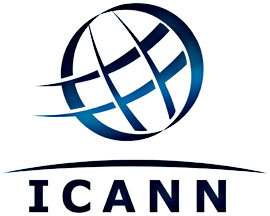Sen. Marco Rubio, still engaged in his campaign to reconnect with his tea party roots after blowing it on immigration reform, announced today that he plans to introduce a bill that would “prevent a ‘takeover’ of the Internet by the United Nations or another government regime.” Steve Benen is puzzled:
To be sure, there are foreign governments that censor their citizens’ access to online content, but it’s not at all clear why Rubio sees this as a domestic threat here in the U.S. As best as I can tell, there is no effort to empower the United Nations or anyone else to regulate the Internet on a global scale. Such a policy would certainly be scary, and would require opposition, but at present, it’s also non-existent.
For the most part, Rubio is probably just glomming onto a random bit of jingoism that he thinks will rile up his base. Still, there’s actually a kernel of substance to this. Right now, the US Department of Commerce exercises ultimate control over the DNS root zone, and ICANN, a nonprofit that administers the DNS naming system, does so under contract  to the Commerce Department. And while ICANN has a global governance structure, it’s based in Los Angeles and has historically had a heavy American management presence.
to the Commerce Department. And while ICANN has a global governance structure, it’s based in Los Angeles and has historically had a heavy American management presence.
But that could change. Last year, in response to some of Edward Snowden’s spying revelations, ICANN’s board of directors issued a statement that called for “accelerating the globalization of ICANN and IANA functions, towards an environment in which all stakeholders, including all governments, participate on an equal footing.” Last month the European Commission joined in, releasing a statement that lamented a “continued loss of confidence in the Internet and its current governance” and proposing new governance that would “identify how to globalise the IANA functions” and “establish a clear timeline for the globalisation of ICANN.” A week later, rumors surfaced that ICANN might try to move its headquarters to Geneva.
Now, this kind of squabbling has gone on forever, and the politics behind these statements is usually pretty murky. There’s no telling if it will ever amount to anything, and in any case it certainly has nothing to do with UN control over the internet. Nonetheless, other countries have long chafed under effective American control of the internet’s plumbing, and the Snowden leaks have given new momentum to calls for that control to end. It’s possible that this is what Rubio is thinking of.


















